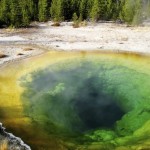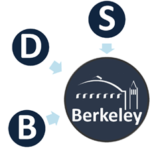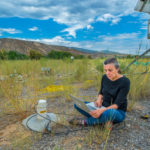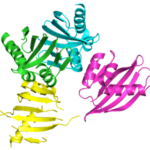A study of gut microbiomes finds that a common DNA sequencing technique overlooks 90 percent of the diversity in archaea, which are single-celled microbes more closely related to humans than bacteria. Archaea are difficult to study, so not much is known about the organisms. This can lead to bias in the archaea knowledge base, says the Joint Genome Institute’s Tanja Woyke, who was quoted in this recent article in The Atlantic.
New Machine Learning Technique Provides Translational Results
A team of scientists has developed an unsupervised multi-scale machine learning technique that can automatically and specifically capture biomedical events or concepts directly from raw data. They have initiated the multi-disciplinary platform: Berkeley Biomedical Data Science Center (BBDS), which aims at facilitating and nurturing data-intensive biomedical science. They will apply this technique to three ongoing projects related to cancer risk assessment and diagnosis, as well as personalized medicine.
What a Genome-Wide Screening Can Reveal about Cancer Survival
Berkeley Lab researchers in the Biological Systems and Engineering Division have developed a 12-gene score tied to the odds of relapse-free breast cancer survival. The scoring system is based on an analysis of large genomic datasets and patient data, and it could eventually be developed for clinical use.
Antoine Snijders, research scientist, led the team that included Xuan Mao, Matthew Lee, Jeffrey Zhu and Carissa Zhu, all students from Campolindo High School in Moraga, California, who worked as interns at Berkeley Lab in 2016. “Berkeley Lab is committed to training the next generation of future cancer research scientists,” said Snijders. Under the supervision of Snijders, they led the programming effort and computational analysis that helped identify the relevant genes and that formed the basis of the scoring system. Snijders said, “It is exciting to see how these students contributed their computational skills to breast cancer research.” Read more in the Berkeley Lab News Center.
EGSB’s Jill Banfield Named 2017 V.M. Goldschmidt Medalist
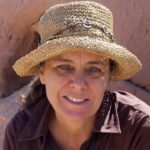 Environmental Genomics & Systems Biology’s Jill Banfield will receive the 2017 V. M. Goldschmidt Award this summer. The Goldschmidt Award recognizes major achievements in geochemistry or cosmochemistry consisting of either a single outstanding contribution or a series of publications that have had great influence on the field. The award will be formally presented at the Goldschmidt 2017 conference in Paris, France this August. Read more on the Geochemical Society website.
Environmental Genomics & Systems Biology’s Jill Banfield will receive the 2017 V. M. Goldschmidt Award this summer. The Goldschmidt Award recognizes major achievements in geochemistry or cosmochemistry consisting of either a single outstanding contribution or a series of publications that have had great influence on the field. The award will be formally presented at the Goldschmidt 2017 conference in Paris, France this August. Read more on the Geochemical Society website.
Designing Protein Cavities from Curved Beta Sheets
Curved beta sheets are important for the architecture of protein cavities, such as enzyme active sites and ligand-binding pockets. Beginning by analyzing classic protein formations and running folding simulations, University of Washington (UW) researchers under the leadership of David Baker designed six protein folds inspired by naturally occurring protein superfamilies. A research report published in the January 13 issue of Science describes how a multi-institutional team of scientists compared the predicted models to physical structures of these designed proteins.
- « Previous Page
- 1
- …
- 159
- 160
- 161
- 162
- 163
- …
- 213
- Next Page »
Was this page useful?


